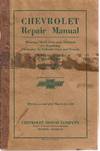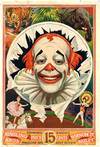

Stock Photo: Cover May Be Different
Proceedings of the Forty-Fifth Pugwash Conference on Science and World Affairs, Hiroshima, Japan 23-29 July, 1995; Towards A Nuclear-Weapon-Free World
by Rotblat, Joseph (Editor) and Konuma, Michiji (Editor)
- Used
- Very Good
- Hardcover
- first
- Condition
- Very Good/very good
- ISBN 10
- 9810231792
- ISBN 13
- 9789810231798
- Seller
-
Silver Spring, Maryland, United States
Payment Methods Accepted
About This Item
Singapore: World Scientific Publishing Co. Plc. Ltd, 1997. Presumed First Edition/First Printing. Hardcover. Very good/very good. xvii, [1], 833, [1] pages. Tables. Figures. References. List of Background Papers. Abbreviations and Acronyms, Author Index. DJ has slight wear and, soiling. 40th Anniversary year of the Hiroshima atomic bombing. Sir Joseph Rotblat (November 4, 1908 - August 31, 2005) was a Polish physicist. Rotblat worked on Tube Alloys and the Manhattan Project during World War II, but left the Los Alamos Laboratory after the war with Germany ended. His work on nuclear fallout was a major contribution toward the ratification of the 1963 Partial Nuclear Test Ban Treaty. A signatory of the 1955 Russell-Einstein Manifesto, he was secretary-general of the Pugwash Conferences on Science and World Affairs from their founding until 1973, and shared, with the Pugwash Conferences, the 1995 Nobel Peace Prize "for efforts to diminish the part played by nuclear arms in international affairs and, in the longer run, to eliminate such arms." Prof. Michiji Konuma is a distinguished theoretical physicist and a former Pugwash Council member. He is Professor Emeritus of Physics at Keio University in Tokyo and a Visiting Researcher at the International Peace Research Institute of the Meiji Gakuin University. He is the former Chairperson of The Special Committee on Nuclear Physics Science Council of Japan. Pugwash seeks a world free of nuclear weapons and other weapons of mass destruction. We create opportunities for dialogue on the steps needed to achieve that end, focusing on areas where nuclear risks are present. Moving beyond rhetoric, we foster creative discussions on ways to increase the security of all sides in the affected regions. The mission of the Pugwash Conferences on Science and World Affairs is to bring scientific insight and reason to bear on namely, the catastrophic threat posed to humanity by nuclear and other weapons of mass destruction. It was in recognition of it mission to "diminish the part played by nuclear arms in international politics and, in the longer run, to eliminate such arms" that Pugwash and its co-founder, Sir Joseph Rotblat, were awarded the 1995 Nobel Peace Prize. Drawing its inspiration from the Russell-Einstein Manifesto of 1955, which urged leaders of the world to "think in a new way": to renounce nuclear weapons, to "remember their humanity" and to find peaceful means for the settlement of all matters of dispute between them."
The Pugwash Conferences on Science and World Affairs is an international organization that brings together scholars and public figures to work toward reducing the danger of armed conflict and to seek solutions to global security threats. It was founded in 1957 by Joseph Rotblat and Bertrand Russell in Pugwash, Nova Scotia, Canada, following the release of the Russell-Einstein Manifesto in 1955. Rotblat and the Pugwash Conference won jointly the Nobel Peace Prize in 1995 for their efforts on nuclear disarmament. International Student/Young Pugwash groups have existed since founder Cyrus Eaton's death in 1979. Pugwash's first fifteen years coincided with the Berlin Crisis, the Cuban Missile Crisis, the Warsaw Pact invasion of Czechoslovakia, and the Vietnam War. Pugwash played a useful role in opening communication channels during a time of otherwise-strained official and unofficial relations. It provided background work to the Partial Test Ban Treaty (1963), the Non-Proliferation Treaty (1968), the Anti-Ballistic Missile Treaty (1972), the Biological Weapons Convention (1972), and the Chemical Weapons Convention (1993). Former US Secretary of Defense Robert McNamara has credited a backchannel Pugwash initiative (code named PENNSYLVANIA) with laying the groundwork for the negotiations that ended the Vietnam War. Mikhail Gorbachev admitted the influence of the organization on him when he was leader of the Soviet Union.[5] In addition, Pugwash has been credited with being a groundbreaking and innovative "transnational" organization and a leading example of the effectiveness of Track II diplomacy. During the Cold War, it was claimed that the Pugwash Conference became a front conference for the Soviet Union, whose agents often managed to weaken Pugwash critique of USSR and instead concentrate on blaming the United States and the West. In 1980, the House Permanent Select Committee on Intelligence received a report that the Pugwash Conference was used by Soviet delegates to promote Soviet propaganda. Joseph Rotblat said in his 1998 Bertrand Russell Peace Lecture that there were a few participants in the conferences from the Soviet Union "who were obviously sent to push the party line, but the majority were genuine scientists and behaved as such". Following the end of the Cold War, the traditional Pugwash focus on decreasing the salience of nuclear weapons and promoting a world free of nuclear weapons and other weapons of mass destruction addresses the following issue areas.
Reviews
(Log in or Create an Account first!)
Details
- Bookseller
- Ground Zero Books
(US)
- Bookseller's Inventory #
- 72857
- Title
- Proceedings of the Forty-Fifth Pugwash Conference on Science and World Affairs, Hiroshima, Japan 23-29 July, 1995; Towards A Nuclear-Weapon-Free World
- Author
- Rotblat, Joseph (Editor) and Konuma, Michiji (Editor)
- Format/Binding
- Hardcover
- Book Condition
- Used - Very Good
- Jacket Condition
- very good
- Quantity Available
- 1
- Edition
- Presumed First Edition/First Printing
- ISBN 10
- 9810231792
- ISBN 13
- 9789810231798
- Publisher
- World Scientific Publishing Co. Plc. Ltd
- Place of Publication
- Singapore
- Date Published
- 1997
- Keywords
- Pugwash, Nuclear Weapons, Proliferation, Russell-Einstein Manifesto, Enola Gay, Daniel Ellsberg, Disarmament, Deterrence, Strategic Arms Limitation, John Holdren, Plutonium, Ballistic Missiles, Victor Gilinski, Spent Nuclear Fuel, CTBT, Arms Control
Terms of Sale
Ground Zero Books
Books are offered subject to prior sale. Satisfaction guaranteed. If you notify us within 7 days that you are not satisfied with your purchase, we will refund your purchase price when you return the item in the condition in which it was sold.
About the Seller
Ground Zero Books
Biblio member since 2005
Silver Spring, Maryland
About Ground Zero Books
Founded and operated by trained historians, Ground Zero Books, Ltd., has for over 30 years served scholars, collectors, universities, and all who are interested in military and political history.
Much of our diverse stock is not yet listed on line. If you can't locate the book or other item that you want, please contact us. We may well have it in stock. We welcome your want lists, and encourage you to send them to us.
Much of our diverse stock is not yet listed on line. If you can't locate the book or other item that you want, please contact us. We may well have it in stock. We welcome your want lists, and encourage you to send them to us.
Glossary
Some terminology that may be used in this description includes:
- New
- A new book is a book previously not circulated to a buyer. Although a new book is typically free of any faults or defects, "new"...

